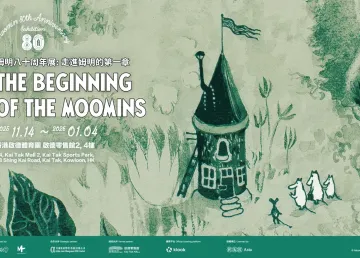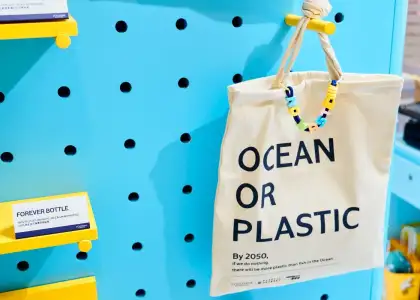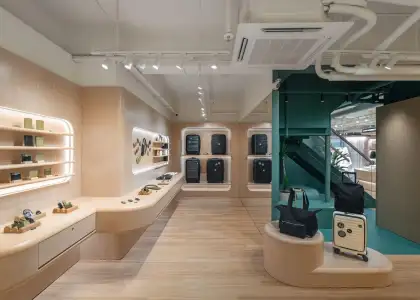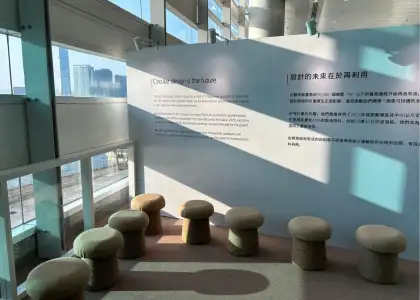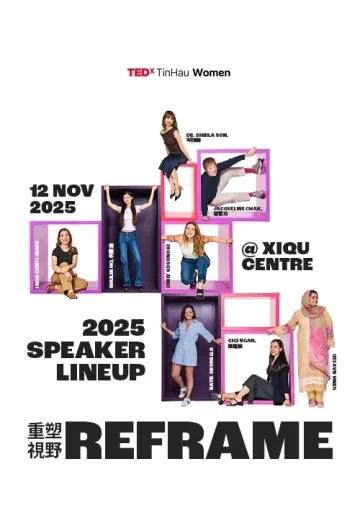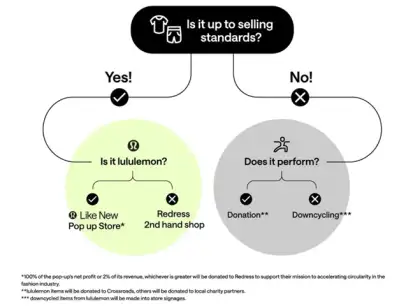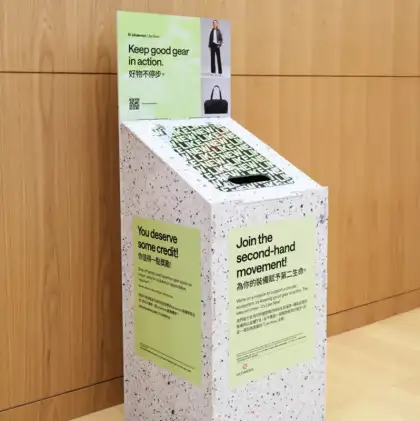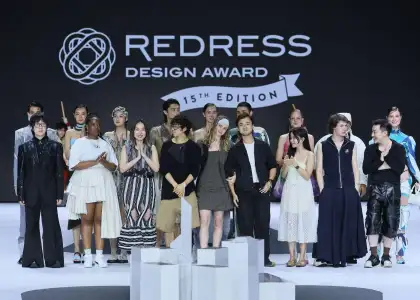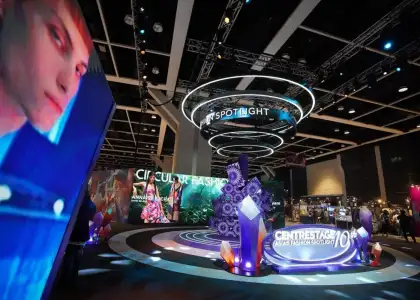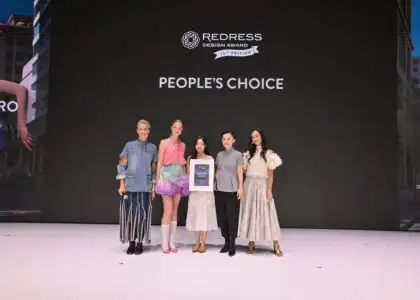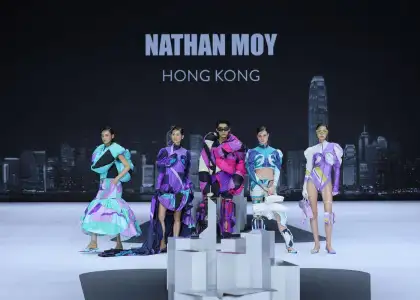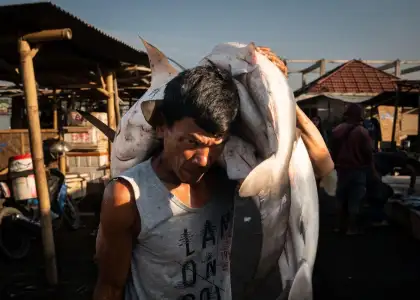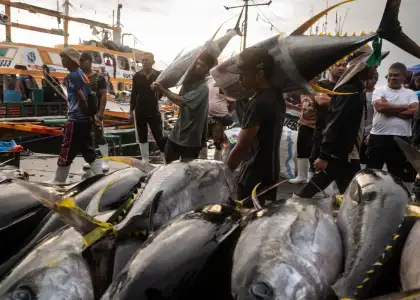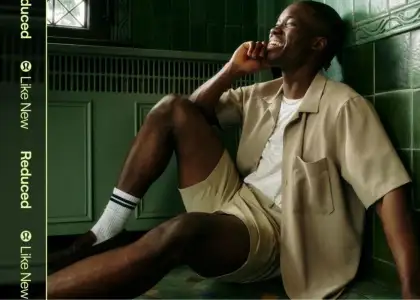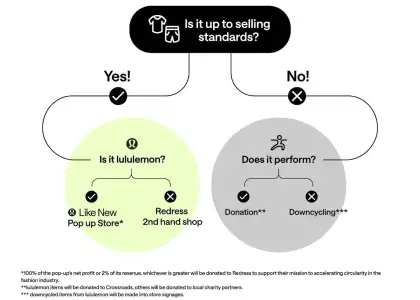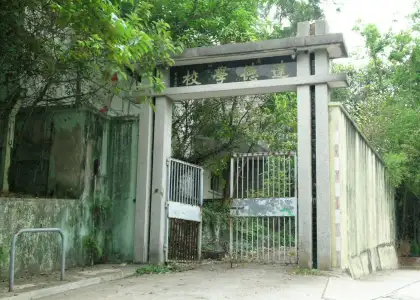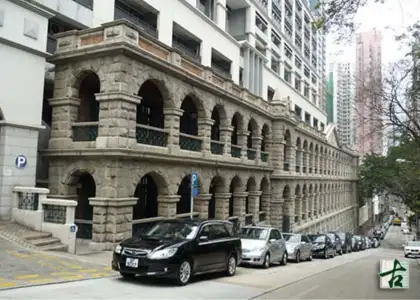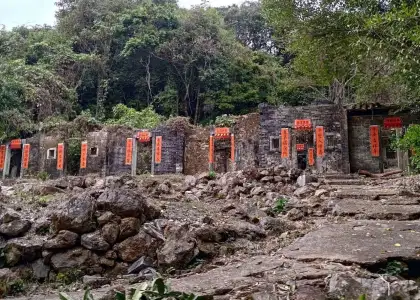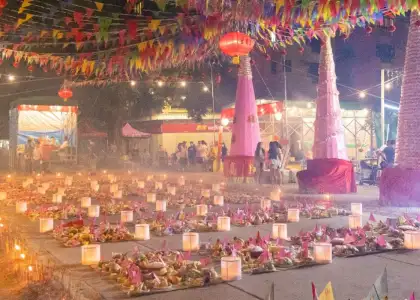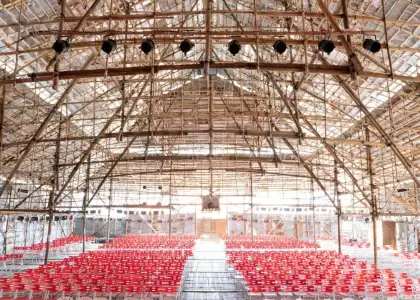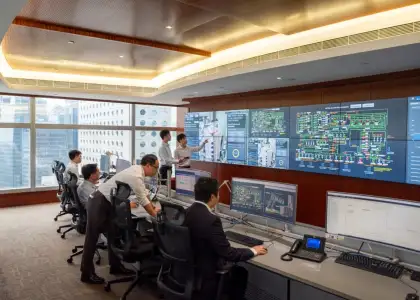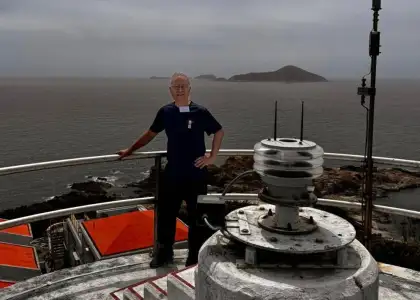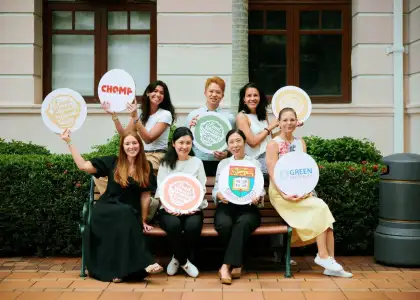ReThink Founder Chris Brown on Building a Sustainable Future for Hong Kong
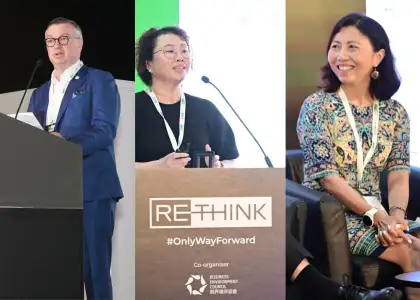
With sustainability at the forefront of discussions on Hong Kong’s development, multiple drivers have always worked to promote solutions amongst key stakeholders in the city. These efforts, however, are often solely comprised of individual parties’ objectives, lacking a unified stance and the collaboration needed to build that sustainable future we all dream of.
After arriving in the city and recognizing this gap, Chris Brown, the Founder of ReThink Hong Kong, set out on a mission to unite Hong Kong in its sustainable development efforts.
Since he founded the conference in 2019, successfully maintaining its growth throughout the global pandemic, ReThink has now become the largest sustainable business event in Hong Kong. Its 2024 edition, however, was even bigger, welcoming over 8,000 attendees to the Hong Kong Convention and Exhibition Centre, Wan Chai. The event aims to not only act as a platform to support cross-business collaboration, but also support local nonprofit organizations — all proceeds from attending delegates go towards NGOs carefully selected by the ReThink Foundation.
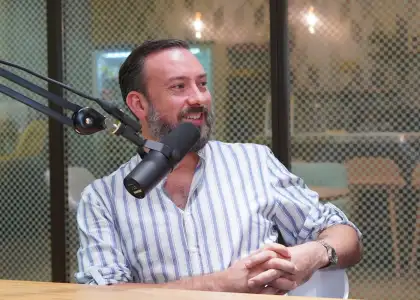
Building on his background working in the events industry for 23 years, Chris found his calling in Hong Kong, which he has now made his lifelong mission. Facilitating discussions on sustainability is no easy task in one of the world’s financial centers which prioritizes convenience over anything, but Chris and his team have effectively engaged Key Opinion Leaders (KOLs), multinational corporations, and the local government from day one of ReThink, supporting each step the city takes towards building a circular economy.
The Beat Asia sat down with Chris to reflect on five years of positive influence in Hong Kong, celebrating progress made along the way and highlighting the important work yet to be accomplished, ReThink HK 2024, and how everyone has the power to make an impact.
Can you start off by sharing more about ReThink HK with our readers?
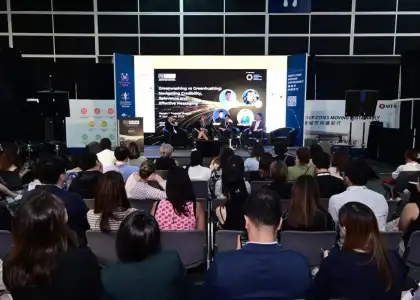
Rethink Hong Kong is now Hong Kong's largest, but more importantly, most ambitious and impactful business event for sustainability.
Our job is to design and host a platform that brings together the full business and impact sustainability ecosystems, like a melting pot of ideas and inspiration, to share best practices, and try and overcome challenges. To build partnerships and collaboration that support the triple bottom line: the planet, people, and profit.
It's been a crazy journey to get to where we are. It's been hugely rewarding, creatively challenging, and stressful, but ultimately, we provide something totally different and unique that genuinely helps individuals, businesses, and the wider community to make progress towards a cleaner, greener, more equitable Hong Kong.
What led you to found ReThink HK – the city’s largest sustainable conference?
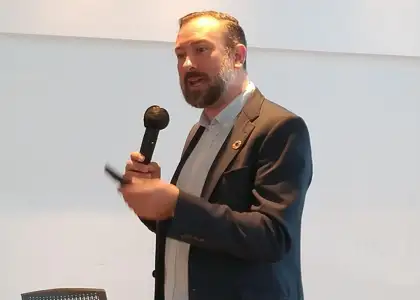
I've been working on business events for 23 years and I feel very privileged to be able to take all that experience and put it towards something good. I've done [events] for the nightclub industry, dentists, bulk transportation, and theme park owners, but to be able to do it for something so important, for a city that I absolutely love and that I want to continue to call home in the future for me and my little family, I honestly never dreamt that I'd be responsible for something like that.
I just really enjoy working on events, but it's evolved into something really special, and it's given me a purpose. This is what I might be here [for]; I've never felt so passionate or determined.
When I first came up with the idea [for ReThink] and was soliciting ideas and feedback, there were comments like ‘Oh, we don't need another sustainability event,’ and that was in 2019. What people really meant to say is ‘We just don't want another [bad] sustainability event.’ So we broke down [what was going wrong and] identified what people want and need from a sustainability event.
Right from the beginning, it was designed and influenced by heavyweight sustainability leaders or practitioners, and some very influential Hong Kong organizations. A lot of them are now our big sponsors, partners, and strategic advisors.
[ReThink is] their annual festival for everyone who is either directly or indirectly connected to sustainability or sustainable transition for their business.
Our event provides an open, accessible, neutral platform, and people see a lot of value in [that]. There are no barriers. If you’re able to contribute, doesn't necessarily mean financially, then there's a seat for you at the ReThink table. If you can help raise awareness, help people understand how to really prove that business case, you can demonstrate that you're doing it, how you've done it, and the difference it's making, then we will find a seat for you somewhere in the event.
Can you share more about the ReThink Foundation?
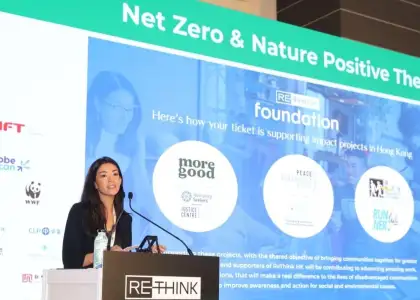
The first two years [of ReThink HK] was [during] COVID-19 and [we received] cash donations for charities who needed extra [funds] to keep supporting [their causes].
Then the projection for the delegate revenue as we moved to the Convention Centre, started to get quite [substantial]. Alongside that, I was getting approached by NGOs [asking to be a] charity partner. So, we decided that we would set up a separate entity which is called the ReThink Foundation.
So that is a not-for-profit [and] the custodian of all the delegate fees. [When] they get paid to ReThink, we transfer that to the Foundation. We have a separate board for the Foundation, and they help us assess the impact projects that get submitted. Going into our second cohort of projects, we had 84 project submissions which went down to three, so, those projects were announced at ReThink [2024].
We've already started funding them and announced them on the keynote stage. In a way, everyone in that room has contributed towards the funding of those projects, whether that's because they bought a ticket, are a sponsor, or a speaker. Everyone contributed towards the overall ReThink proposition that people want to pay to come to an event [where their] money goes to fund those projects.
Have you always had an interest in promoting circular solutions? Can you share more about your sustainability journey with us?
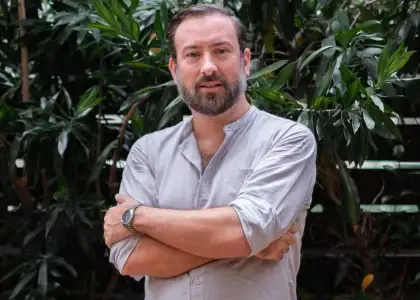
We always knew that running big events is inherently wasteful, but when [we were] running those events in the past, did we really think about it? [When] I moved to Hong Kong in 2015 to launch some events and that project finished, I did a bit of consultancy work in Kuala Lumpur and Shanghai, and was [using] that as an opportunity to keep working and have a rethink about what did I want to do?
I was back in Hong Kong for a couple of weeks from traveling and there were about four different things that happened over three months that if I look back, all contributed towards me going [into sustainability].
I just talk about one of them because it's slightly funny. Every Tuesday or Wednesday morning, I’d go into a restaurant for their breakfast offer. I went to the toilet [one morning] and the tap in the sink was running water. I went back and [told the server] and he said, ‘I know we're going to get it sorted out.’ I went back in the next week [and the] tap was still running. I said [to him again], ‘Has this tap been running [all week]?’ He said, [he’d] spoken to management but [they] just don't care. Me and my partner went back a few weeks later, and it had been fixed.
Reflecting on five years since you founded ReThink HK, what sustainable development have you observed in the city?
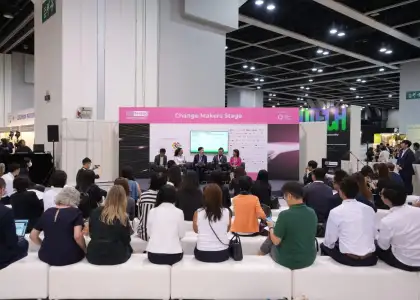
I think ReThink is a pretty useful barometer of what's happening in the sustainability space. Our job is to be near the forefront of what's happening: discussing and debating what's actually happening, as well as what should and could be happening. I hope that people see a reflection of reality in ReThink.
This core vision around proving the business case for sustainability has been challenging over the last five years; COVID-19 and the impact it had on global economies. I read a phrase recently that says we're in a sustainability recession, so that is people pulling back on investments, delaying projects, and cutting head count.
Ultimately, I think [the pandemic] was probably a good thing for sustainability awareness. Most people, and hopefully most businesses, are more aware of the fragility of existence. I hope it never happens again, but if you do want to take some positive out of it, there was a shift in human consciousness.
In addition to that, let’s celebrate some of the direct impact ReThink HK has had on the city. What are some notable milestones for you?
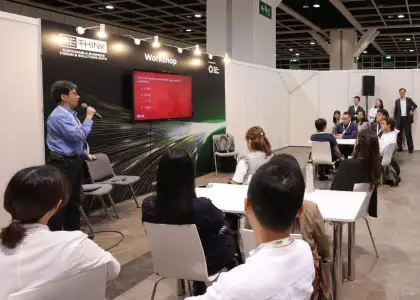
How we measure success [is because] we're still traditional in terms of what we are, a big expo conference. So, how many people attend, how many sponsors there are, and what do the surveys say? But alongside that, and this is difficult to measure, is what impact does ReThink HK really have?
The more people that attend, the bigger the pot that goes to the Foundation [to support local sustainability projects], so there's an impact there, and of course, we ask our stakeholders how has coming to the event changed the way you're going to do things, but that's all pretty subjective.
So where can we make a real difference? What I really want to do is change the way events are run in Hong Kong. I want to put pressure on my peers within the trade and expo industry and hold the lens up to them.
We try to be this best example; we have our own internal sustainability expert who's helping to run the event as sustainably as possible, measure everything, rapport, and disclose everything. Our goal is that, after this year's event, we will set our first [sustainability] targets.
A major barrier to Hong Kong’s sustainability journey is its import dependent economy. How do you foresee the city working to transform into a more circular model?
The way Hong Kong is traditionally operated is it’s market-led, so business leads the way, and at the point where they need or require government intervention or government support policy, the government will respond and provide that pathway forward. From a sustainability perspective, five years ago, that was still very much the way things were working. But with the government setting a 2050 Target, that really put the focus on the four key areas of the decarbonization of Hong Kong: buildings, transport, energy, and waste.
There’s been a lot of media in the last weeks from South Korea about how they now recycle 97% of their food waste. It is phenomenal. Now, it didn't happen overnight, but a clear vision and investment [was required] for that to happen. And I think that's what the sustainability sector is looking for here.
An impressive achievement at ReThink has been your continued partnerships with large corporations, including HSBC, JLL, Lufthansa Group, etc. Although their participation is crucial, how do you hold these large businesses accountable for their greater impact or lack of sustainability initiatives compared to the scale of their operations?
Fundamentally, I believe that the impact, the outcomes, and the progress that ReThink helps to facilitate is real. In order for us to do that and continue to build on it, we need commercial support.
What we can do is ensure that those sponsors do not use the platform to gloss over the issues that they're facing. You can probably imagine that some financial institutions have to be very careful about who they put on stage and who can say what. But we make them very aware that we are not going to control or restrict the discussion to protect them.
Because we're not a membership organization, we have editorial neutrality. Our job is to host the discussion. And we've done a good job of that.
What were the highlights of the 2024 edition of ReThink HK?
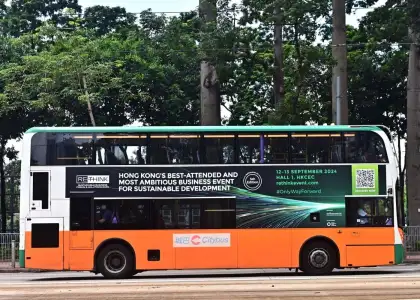
This is a really hard one because we put so much time, effort, and care into designing [the event]. It’s like going to a one-day conference but there's eight of them happening in the same room at the same time. The highlight, hopefully, is that someone came for half a day, a day, or two days, and built their own snapshot of sustainability in Hong Kong. I truly hope that everyone took at least something away with them.
If [I were] to pick one thing, I'm going to have to go with something that was totally new this year: the closing debate.
All the programs ended earlier than normal, and we closed the event on the main stage with a debate. Hopefully, that provided an element of ceremony and provided the audience with something lively, but thought-provoking. There was also a live vote before and after the debate on whether the attendees at ReThink believe that we have a credible path to carbon neutrality.
What is an effective and achievable goal businesses can start to apply today to become more sustainable in their operations?
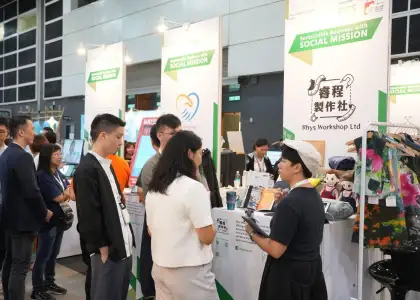
If you are thinking about it, and you're starting to put the wheels in motion to do something about it, there is probably someone else who is either in exactly the same position as you, or a few steps ahead.
There will be others, in very close proximity to you, that will have already started that journey. They may not have made much progress, or they could be a step ahead of you, and I promise, if you reach out to them, they'll be very grateful that there's someone else out there who's thinking about the same challenges that they are.
You know who your competitors and suppliers are, you know your customers are all interlinked. You all have this Venn diagram of challenges, and it's so much easier than doing it on your own.
What’s next for Hong Kong?
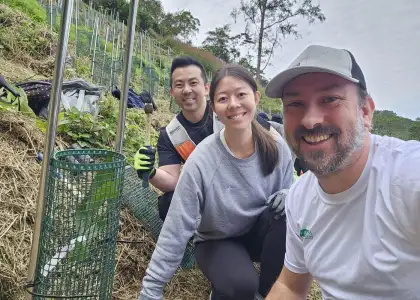
Hong Kong has a proven history of being able to adapt and I don't think that'll be any different for sustainability. The pace of transition might be slower than is required, but there will be an inflection point, and I think as Hong Kong has proven many times in in the past throughout its history, there will be a real call to arms from businesses if Hong Kong starts losing out in certain areas.
You'll get a response. It will all come together, and there will be a point when it will change, and when it does, it will change quickly.
That's why, I'm committed to Hong Kong. That's why I'm hugely excited about the future for ReThink, and to be a key touch point in that transition process around sustainability, but also other areas of transformation as well.
Learn more about ReThink Hong Kong and follow them on Instagram and LinkedIn.
Subscribe to The Beat's newsletter to receive compelling, curated content straight to your inbox! You can also create an account with us for free to start bookmarking articles for later reading.




